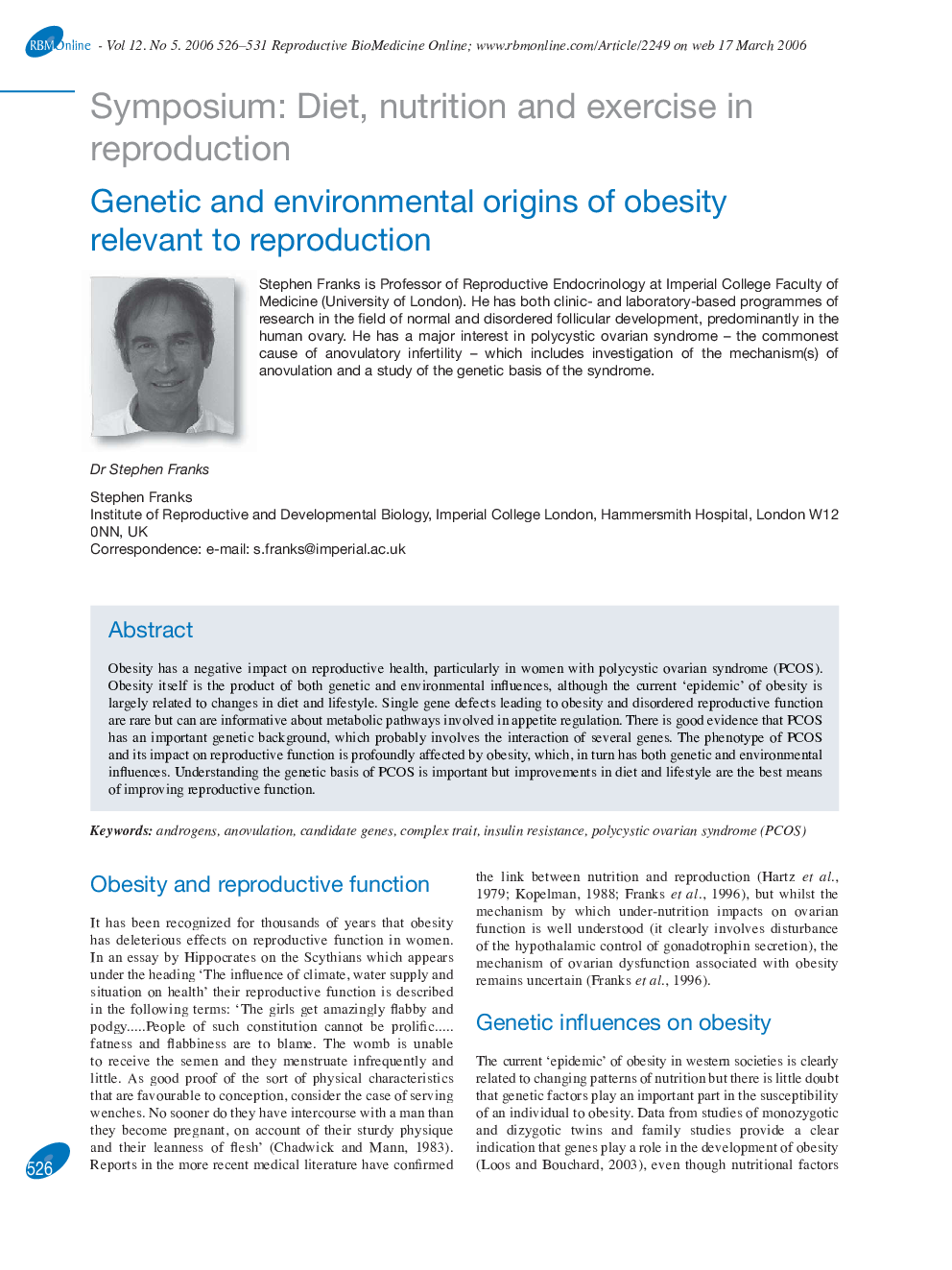| Article ID | Journal | Published Year | Pages | File Type |
|---|---|---|---|---|
| 3971854 | Reproductive BioMedicine Online | 2006 | 6 Pages |
Obesity has a negative impact on reproductive health, particularly in women with polycystic ovarian syndrome (PCOS). Obesity itself is the product of both genetic and environmental influences, although the current ‘epidemic’ of obesity is largely related to changes in diet and lifestyle. Single gene defects leading to obesity and disordered reproductive function are rare but can are informative about metabolic pathways involved in appetite regulation. There is good evidence that PCOS has an important genetic background, which probably involves the interaction of several genes. The phenotype of PCOS and its impact on reproductive function is profoundly affected by obesity, which, in turn has both genetic and environmental influences. Understanding the genetic basis of PCOS is important but improvements in diet and lifestyle are the best means of improving reproductive function.
